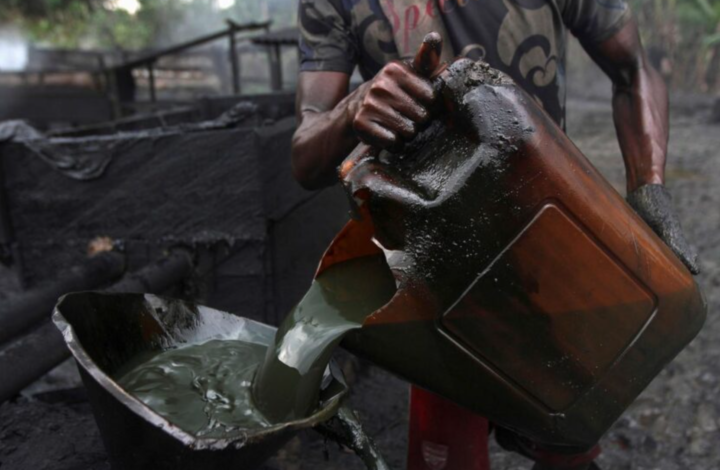The Nigerian National Petroleum Corporation (NNPC) has reported a concerning surge in crude oil theft, recording a total of 157 cases within a single week. This revelation highlights the persistent challenge of illegal activities within the country’s oil and gas sector, with crude oil theft posing significant economic and environmental threats.
The spike in crude oil theft cases, as reported by the NNPC, raises several key concerns:
1. **Economic Implications:**
– Crude oil theft directly impacts Nigeria’s revenue, as stolen oil represents a loss of income for the government. The illicit trade in stolen oil undermines the country’s efforts to maximize the benefits of its natural resources for economic development.
2. **Environmental Consequences:**
– The unauthorized extraction and transportation of crude oil often lead to environmental degradation. Oil spills resulting from illegal activities can have severe consequences for ecosystems, water sources, and local communities.

3. **Security Challenges:**
– The prevalence of crude oil theft indicates ongoing security challenges in the oil-producing regions. Tackling this issue requires coordinated efforts from security agencies, local communities, and the oil industry to deter and apprehend those involved in illegal activities.
4. **Regulatory and Enforcement Measures:**
– The reported cases underscore the need for enhanced regulatory measures and enforcement mechanisms to curb crude oil theft. Strengthening surveillance, intelligence gathering, and collaboration with relevant stakeholders are critical components of an effective response.
5. **Community Engagement:**
– Addressing crude oil theft also involves engaging with local communities to address underlying issues that contribute to illegal activities. Community empowerment, economic development initiatives, and addressing grievances can help create a more conducive environment for lawful activities.
6. **International Collaboration:**
– Given the global nature of the oil market, international collaboration is essential to combat crude oil theft. Cooperation with neighboring countries and international organizations can help track stolen oil and prevent its illegal export.
The alarming number of cases reported by the NNPC underscores the urgency of addressing the root causes and consequences of crude oil theft. A comprehensive approach that combines regulatory, security, environmental, and community-focused strategies is crucial for mitigating the impact of illegal activities on Nigeria’s oil sector.
In conclusion, the reported surge in crude oil theft cases highlights the multifaceted challenges facing Nigeria’s oil and gas industry. Addressing this issue requires a concerted effort involving government agencies, security forces, local communities, and international partners to safeguard the country’s natural resources and promote sustainable development.
Support InfoStride News' Credible Journalism: Only credible journalism can guarantee a fair, accountable and transparent society, including democracy and government. It involves a lot of efforts and money. We need your support. Click here to Donate
